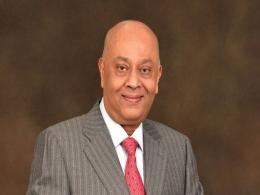Singapore state investor Temasek Holdings' assets likely rebounded last year and rose by at least 10 percent to a record, propelled by gains in shares of Chinese banks and domestic companies.
One of the world's biggest investors, Temasek is reshaping its strategy to focus on fast growing emerging sectors, while also beefing up its investment teams. It is the biggest investor in a third of companies in Singapore's benchmark index.
But its long-held investments in financials, such as China Construction Bank, DBS Group and Standard Chartered, paid off last year as equity markets rebounded.
"The most important listed equity markets for Temasek grew a lot last year," said Javier Capapé, director at the Sovereign Wealth Lab research centre at the IE Business School in Madrid.
Temasek said it will share its performance next week for the year ended March 31, and offer views about the outlook.
Analysts estimate its assets rose to a record last year after it fell by 9% from a year ago to S$242 billion ($175 billion), its first drop since 2009. Singapore and China represent the largest share in its portfolio by underlying exposure. Unlike many state investors, the majority of Temasek's investments are in equities.
And while MSCI's Asia shares ex-Japan index rose 17 percent last year, DBS and StanChart soared 28 percent and 68 percent, respectively.
"Markets have been kind to everybody last year, but are the gains sustainable?" asked Song Seng Wun, an economist at CIMB Private Banking, who estimated Temasek's portfolio value rose between 12 percent and 15 percent last year.
Despite a strong year, global sovereign investors face a challenge to boost long-term returns amid rich equity valuations and still low-yielding bonds.
"In a low-growth, low-yield environment, long-term investors like sovereign wealth funds face greater challenges to make high enough returns to meet their mandates," the International Forum of Sovereign Wealth Funds' (IFSWF) investment practice committee said in a research note prepared with State Street Corp late last year.
It said that many investors, including IFSWF members, were looking to private markets to generate higher long-term returns in the backdrop of low bond yields and as global equities look increasingly volatile or overvalued.
GIC, Singapore's bigger state fund, which has warned of low returns over the next decade, reports results this month.
Temasek's net portfolio value has nearly doubled over the last decade. It has been pouring more money into healthcare and life sciences and expanded its footprint in North America last year by opening its San Francisco office.
The telecom, media and technology sector emerged as its biggest investment cluster in the year to March 2016 at 25 percent, overtaking financials for the first time in a decade.
"The big news is the rebalancing in the long-run on tech and startups," said Capapé, who highlighted Temasek's $800 million funding in Verily Life Sciences and investments in Innovent Biologics and Iora Health last year.
Temasek also invested in Mexican tequila maker Jose Cuervo, paid S$1.2 billion to take full control of Singapore rail operator SMRT and raised its stake in Singapore Telecommunications Ltd, its biggest stock holding.
Divestments are picking up too. Temasek sold its S$2.3 billion stake in shipper Neptune Orient Lines. It pared its stakes in Industrial and Commercial Bank of China and China Construction Bank but is optimistic on the sector.
Beyond investments, analysts highlight leadership succession as a near term challenge for Temasek, whose CEO Ho Ching has been at the helm for more than a decade.
Ho, the wife of Singapore Prime Minister Lee Hsien Loong, has recently come under criticism from Lee's younger siblings in a family feud that has gone public.
The government has said Temasek's board looks at succession on an annual basis. Temasek has hired and promoted many finance and market professionals in recent years to build its leadership.







